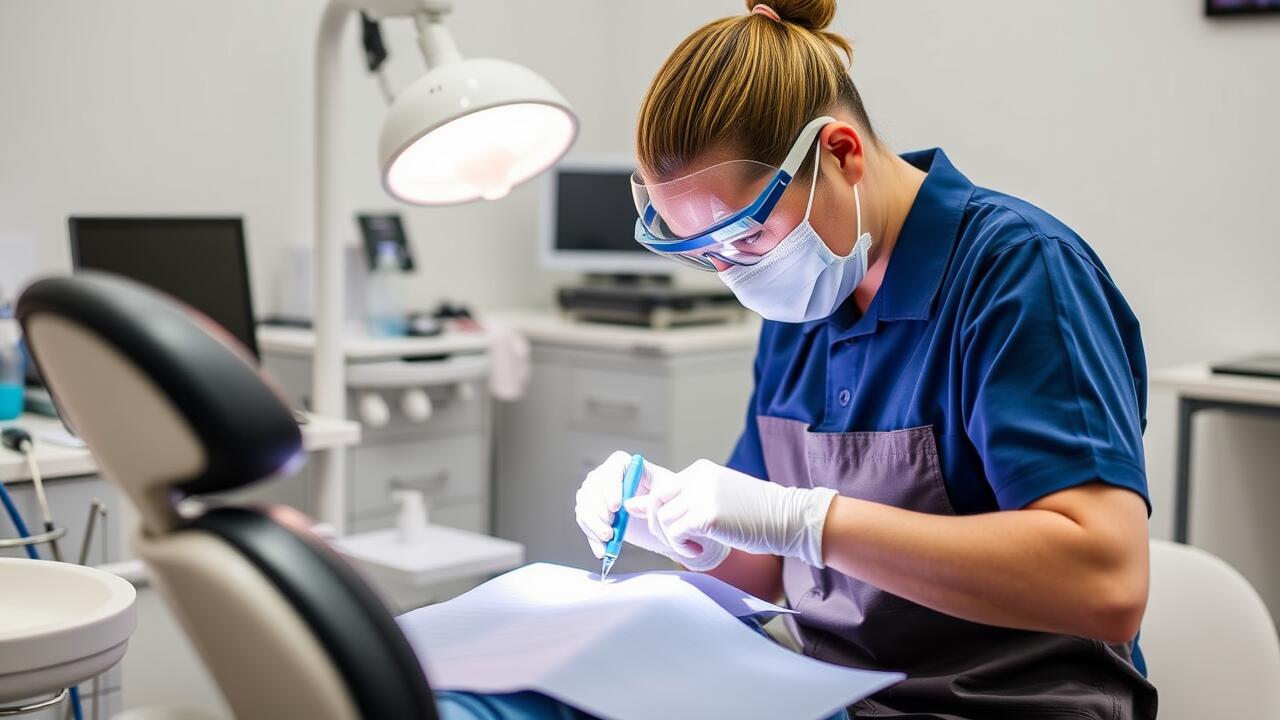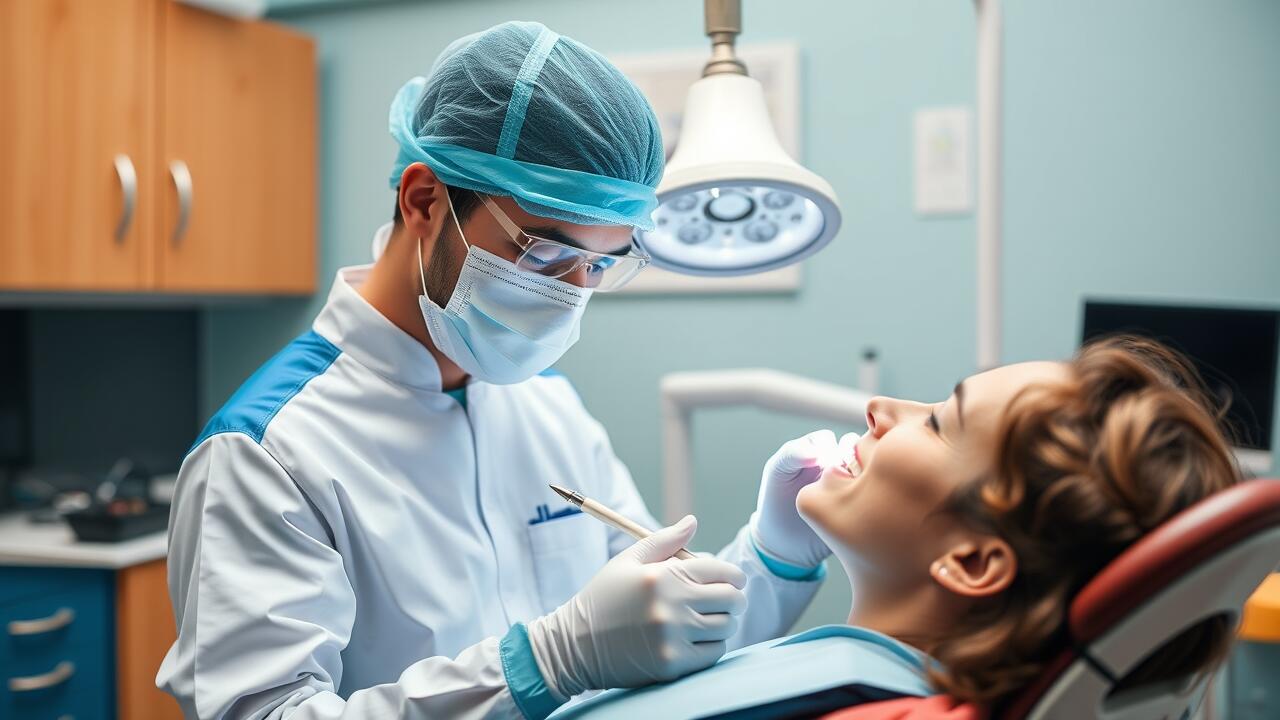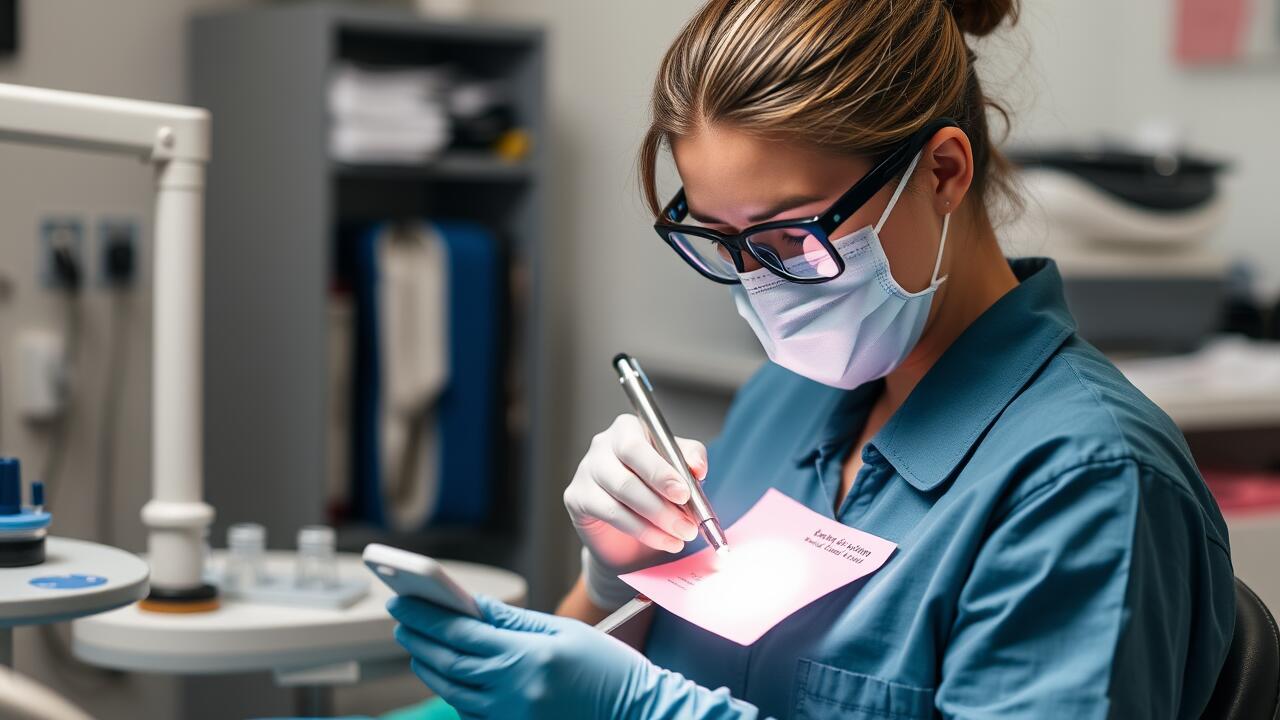
The Role of Preventative Care
Preventative care serves as the cornerstone of maintaining optimal dental health. Regular dental exams play a crucial role in identifying potential issues before they escalate into serious problems. These exams allow dentists to assess not only the condition of teeth and gums but also to evaluate overall oral health. By prioritising these appointments, individuals can benefit from early intervention, reducing the likelihood of invasive procedures and promoting long-term well-being.
In addition to identifying issues, dental exams also provide an opportunity for dentists to share personalised advice on oral hygiene practices. Essential guidance can include dietary recommendations and techniques for brushing and flossing. Such proactive measures encourage patients to take responsibility for their dental health, fostering a better understanding of their needs. Engaging in preventative care through regular dental exams ultimately leads to healthier smiles and a more confident outlook on life.
View this external resource for great tips and advice.
How Regular Dental Exams Prevent Serious Problems
Regular dental exams play a crucial role in identifying potential issues before they develop into more serious problems. During these assessments, dentists can detect early signs of conditions such as cavities, gum disease, and even oral cancer. By addressing these problems promptly, patients can avoid more invasive treatments and extensive procedures, which may require significant time and financial investment later on.
Furthermore, dental exams allow for the monitoring of existing dental conditions. For individuals who have had previous dental work or chronic issues, these check-ups provide an opportunity for professional assessment and adjustment of ongoing care plans. Maintaining an open line of communication with the dentist during these visits ensures that any changes in oral health are promptly noted and managed effectively.
Understanding Treatment Options
Treatment options following dental exams can vary significantly based on individual needs and the findings observed during the examination. Dentists often assess the overall condition of a patient’s oral health, identifying any areas that require attention. Common treatments may include fillings for cavities, teeth whitening for aesthetic improvements, and the need for sealants to protect against decay. More extensive procedures, such as root canals or extractions, may be indicated in cases where there is significant damage or infection detected during the dental exams.
In addition to these common procedures, patients might be presented with various alternatives depending on their specific circumstances. For instance, those with misaligned teeth may be offered orthodontic treatments such as braces or clear aligners. Preventative measures, such as fluoride treatments or regular cleanings, are designed to enhance oral health and prevent future issues from arising. It's essential for patients to openly discuss their treatment options with their dentist to ensure a tailored approach that meets their health requirements and personal preferences.
Common Procedures Recommended After Exams
Following dental exams, several procedures may be recommended to address any issues identified during the check-up. One common procedure is scaling and polishing, which removes plaque and tartar buildup from the teeth. This not only enhances the aesthetic appearance but also significantly reduces the risk of gum disease and cavities. Additionally, fluoride treatments may be suggested to strengthen enamel and provide added protection against decay.
In cases where more significant problems are detected, restorative treatments such as fillings or crowns might be necessary. Dental exams can highlight the need for these interventions, which aim to restore the functionality and health of teeth affected by decay. For individuals with noticeable alignment issues, orthodontic options may be discussed to improve both function and appearance. Addressing these concerns promptly can lead to better long-term oral health outcomes.
Importance of Oral Hygiene at Home
Maintaining oral hygiene at home plays a crucial role in overall dental health. Regular brushing and flossing help remove plaque and food particles that can lead to decay and gum disease. These practices create a solid foundation for oral health, complementing the benefits achieved through dental exams. A routine that includes brushing twice a day and daily flossing can significantly reduce the risk of developing serious dental issues.
Moreover, the importance of a balanced diet cannot be overlooked. Consuming a variety of nutrient-rich foods supports healthy teeth and gums, while limiting sugary snacks helps prevent cavities. After dental exams, dentists often provide tailored advice based on individual needs. Implementing such guidance, along with diligent home care, fosters a healthier mouth and sets the stage for long-lasting dental well-being.
Best Practices for Maintaining Healthy Teeth
Maintaining healthy teeth requires a consistent daily routine that balances diet and oral hygiene practices. Brushing at least twice a day using fluoride toothpaste is essential for removing plaque and preventing cavities. Flossing daily is equally important, as it helps to clear food particles and plaque from between the teeth where a toothbrush may not reach. Regularly visiting the dentist for Dental Exams also contributes significantly to oral health, enabling early detection of issues that could lead to more extensive treatments later on.
In addition to proper brushing and flossing, dietary choices play a crucial role in dental health. Reducing the intake of sugary snacks and drinks can lower the risk of tooth decay. Incorporating a variety of fruits, vegetables, and dairy products can help strengthen teeth and gums. Staying hydrated by drinking plenty of water aids in washing away food particles and promotes saliva production, which is essential for neutralising acids in the mouth. Following these best practices not only keeps teeth healthy but also supports overall well-being, reinforcing the significance of regular Dental Exams.
FAQS
How often should I schedule dental exams?
It is generally recommended to schedule dental exams every six months, although your dentist may suggest a different frequency based on your individual oral health needs.
What can I expect during a dental exam?
During a dental exam, your dentist will check for cavities, gum disease, and other oral health issues. They may also take X-rays and perform a cleaning to remove plaque and tartar.
Are dental exams painful?
Dental exams are typically not painful. You may feel some discomfort during certain procedures, but your dentist will do their best to ensure you are comfortable throughout the exam.
What should I do if I have dental anxiety?
If you have dental anxiety, it's important to communicate this with your dentist. They can offer options to help you feel more relaxed, such as sedation dentistry or distraction techniques.
How can I maintain good oral hygiene at home?
To maintain good oral hygiene, brush your teeth at least twice a day with fluoride toothpaste, floss daily, and rinse with an antibacterial mouthwash. Additionally, limit sugary snacks and drinks to promote better oral health.

